Italian-American Food. Is it That Bad?
Chicken Parmigiana, Fettuccine Alfredo, Chicken Vesuvio, Spaghetti with Meatballs….Most Americans believe that these are some of the most typical Italian dishes, and they actually love them. But, are they really Italian?
Experts generally agree that Italian-American cuisine is damaging the image of the real Italian culinary tradition in the United States. After all, who in Italy has ever eaten Veal Parmigiana or Pizza with pineapple? If you aked an Italian, most likely he would think you are teasing him. We would tell him that, indeed, this is what is considered to be “typically Italian” in America.
All of us know that this “deviation” was (generally speaking) first born from the need to substitute the ingredients required by the original recipe with those available locally, back when Italians first emigrated to the United States. If at first the “game” was played by Sicilian, Neapolitan, Calabrese massaie who maintained a strong sentimental and cultural connection with their hometowns (and thus knew pretty much what they were doing), it was then left to others, mainly people who had never been to Italy in their lives (including second and third generation Italians) and adapted Italian recipes to the “American taste”.
The issue now is: is this food any
good or not? In other words: even though they often have nothing to do with the original recipes, are the dishes mentioned above still to be considered “delicacies”? And, moreover, can “real” Italian restaurants in American coexist with the Italian-American ones?
Most experts would answer NO to both questions. They don’t even accept the idea of an “istitutionalized” Italian-American cuisine.
But we found one who does. Fred Plotkin is not only a real gourmet, but he is also considered one of the major experts of Italian cuisine in America. Author of best-selling books such as “Italy for the Gourmet Traveler”, “The Authentic Pasta Book, Recipes from Paradise: Life and Food on the Italian Riviera”, “La Terra Fortunata: The Splendid Food and Wine of Friuli-Venezia Giulia” and “Italy Today: The Beautiful Cookbook”, and writer for the trade reviews “Bon Appetit” and “Gourmet”, he confessed to us that he fell in love with Italian cuisine when he first tasted a panini with meatballs in a salumeria near the school he used to go to. “I love Italian food, but I eat Chicken Parmigiana too. Who couldn’t like a dish with tomato sauce, chicken cutlets and cheese?”, he told us in a mid-summer afternoon.
Could we refrain from interviewing him on the issue?
So you the accept the idea of an Italian-American cuisine…
Well, there is Italian, and there is Italian-American cuisine. Those are two completely different topics. Italian cuisine in America is the attempt to bring what Italians eat now to the United States. Italian-American cuisine is a rich cultural tradition that has been evolving for more than a hundred years. I grew up in New York and in my neighborhood there were many Italian families. I was not of Italian background as far as I know, but I remember these people’s food and also the spirit that went with it, the one of sharing with the others what you had. We have to remember that almost every Italian-American has a background of poverty, and therefore almost every Italian-American represents a success story.
This is something wonderful to think about. Certainly Jews and Italians have been among the peoples who have prospered through hard work and solidarity with one another, Jews emphasizing education, Italians emphasizing hard work and family structure. This has resulted in the passing down of traditions.
Have you ever written a book on Italian-American cuisine?
Well, when I write my Italian cookbooks about regions of Italy, what I often do is to visit Italian immigrant communities all around the world to see how the Friulani or the Liguri or the Marchiggiani, who arrived in the United States or Argentina or Canada fifty years ago, prepare their food today.
We must recognize that Italian American cuisine is memory plus ingredients. I’ll give you a famous example. In Liguria where I live part of the time, there’s a little soup—it’s a broth—called Ciuppino, which means soup. And it’s really just a fish broth with a few tiny pieces of poor fish in it. When Ligurians got to San Francisco in 1849, and they started getting a little more money, the soup turned into this massive seafood stew that a Ligurian would never know. Often what I think of as Italian-American food is really original Italian recipes on steroids; with the arrival of wealth people desire not show off, but to share and to be generous, and push away the memory of miseria. Another example: the food of Campania and Naples: spaghetti, macaroni, mozzarella cheese, tomato sauce…they are divine in Italy, I love them. Somehow here they have turned into something much heavier.
What do you mean by “heavier”?
The portions are bigger, the flavorings are more extravagant, and they’re not subtle here. They are delicious; I don’t ever want to give the wrong impression, everyone loves chicken parmigiana. And not because it’s Italian…it’s not Italian food. Veal parmigiana is not Italian either; an Italian would never bread veal and fry and cover it with sauce and cheese. But it tastes great.
When I was a kid and I went to high school, on the corner there was an Italian American grocery store that had the most wonderful meatballs, and I would stop there every day to buy my lunch. The people who sold me the food were so nice, that was the other thing. They recognized that here was this little Jewish boy who loved and respected what they did, and so much so that I’ve made it my life to study that tradition.
But I think that what we have to respect, is that Italian American food is a separate tradition and a separate reality from Italian food, and Americans who go to Italy and expect to find what they eat here, will never find it.
As an example? Has somebody ever complained for what they COULD NOT eat in Italy?
A good example is chicken parmigiana…Italians don’t eat that much chicken. The reason goes back to an old Piemontese proverb Quando un uomo mangia una gallina, è malato lui o è malata lei. In other words, when a man eats a chicken, either he’s sick or she’s sick. A chicken provides eggs, an ongoing protein source, much as cattle provide milk. So if you have something giving you a protein source, you don’t kill it unless you really have to. Therefore chicken has never been a major thing in Italian food, eggs are, absolutely, but not chicken. But, still, most people do not know this and often complain they can’t eat chicken parmigiana in Italy….
What makes a good, “original” Italian restaurant here in the US?
I think it’s very difficult to define a restaurant as “Italian” here. I would maybe say Italian style restaurant, or I would say “Bolognese cuisine” or Venetian cuisine”, so that you understand where the chef is from. When I enter an Italian restaurant in the United States or France or England or Japan, that’s the first thing I ask. With regards to Italian cuisine, in fact, it is very important to know from which region, tradition, the chef comes. I would never order a Veal dish from Milan in a place where the chef is Sicilian… I would rather order Caponata, or something with oranges or Pasta alla Norma…
What I’m saying is that, even if a chef lives abroad and learns how to cook different kinds of food, he will always prepare the traditional dishes of his hometown, or region, much better. Because they are part of his culture, his education.
Another example. There’s a restaurant in London where the chef is from Genoa… I eat pesto and foccaccia there, but I probably wouldn’t eat steak--it wouldn’t make sense. That’s the secret that I give people.
I never use the word ‘authentic’ when I talk about food, because food cannot be authentic. Food can come from a tradition and a style, but every cook has his or her own way to make it. And that’s also because he/she cooks with love, and tries to please the ones he/she cares for by preparing the dish just the way they like it better...
































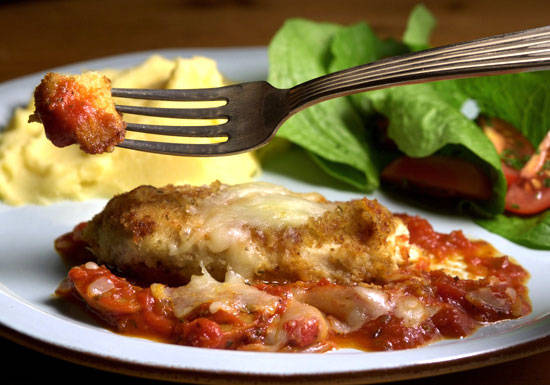
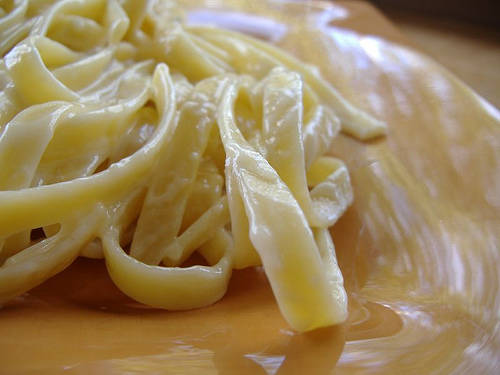
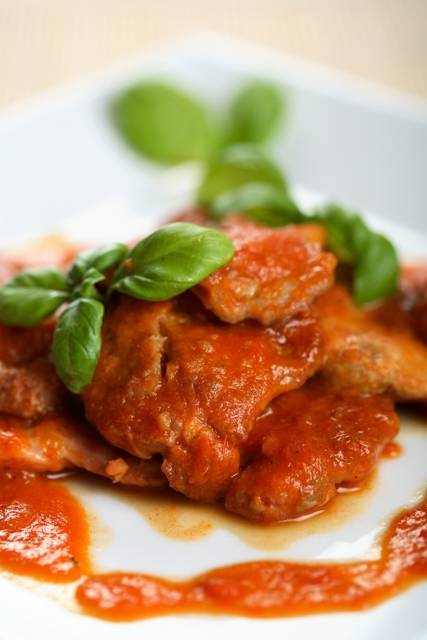
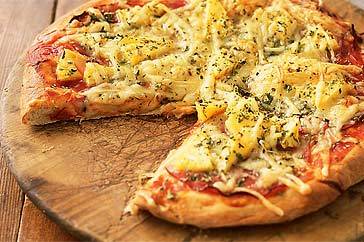





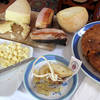
i-Italy
Facebook
Google+
This work may not be reproduced, in whole or in part, without prior written permission.
Questo lavoro non può essere riprodotto, in tutto o in parte, senza permesso scritto.